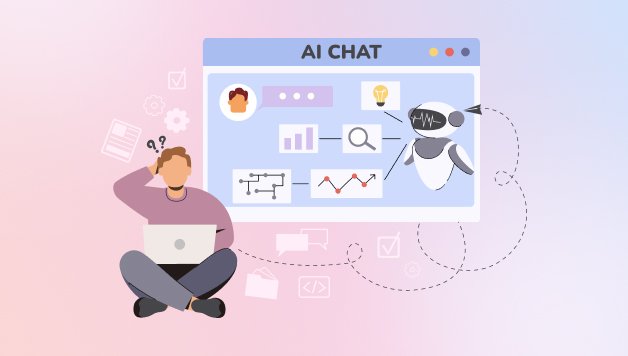In 2025, when customer expectations are at an all-time high and instant support is no longer a luxury but a necessity, trust has become the cornerstone of any successful interaction between businesses and their audiences. The rise of conversational AI has transformed the way brands communicate, and at the heart of this transformation is the intelligent AI Chatbot Response — designed not just to answer but to understand, empathize, and build meaningful relationships.
While the technology behind chatbots has matured, users are now looking for more than speed. They want clarity, emotional intelligence, and authenticity in every digital exchange. So, how do businesses keep up? The answer lies in blending advanced AI with a deep understanding of human behavior.
Why Trust Matters in AI-Powered Communication
Whether it’s resolving a support ticket, helping someone make a purchase, or guiding a user through a complex query, trust is what keeps customers coming back. However, the use of AI in conversations — especially chatbots — can sometimes feel impersonal or mechanical if not implemented correctly.
That’s where intelligent AI Response systems come into play. These systems leverage not just data but also context, user history, sentiment analysis, and intent recognition to respond in a way that feels natural and reliable. When users feel heard and understood, the emotional connection to a brand strengthens significantly.
Trust isn’t built overnight, but every conversation contributes to it. And in 2025, companies that prioritize trust through intelligent AI solutions are already leading the charge in customer satisfaction.
The Role of Natural Language Processing Chatbots
One of the key advancements shaping trust-building in AI communication is the rise of Natural Language Processing Chatbots. These bots are not just script-following engines — they analyze sentence structure, detect emotions, and even recognize slang, idioms, and cultural nuances.
With the help of NLP, chatbot responses are no longer robotic. Instead, they mirror the nuances of human interaction. Whether it’s handling a complaint or answering a query, users are more likely to trust responses that seem conversational and accurate.
The beauty of Natural Language Processing Chatbots lies in their ability to learn from interactions over time. As they get more training data, their accuracy, tone, and helpfulness improve, making the experience smoother and more human-like. For businesses, this translates into fewer misunderstandings, faster resolution times, and happier customers.
What Makes an AI Chatbot Response Intelligent?
Not all chatbot responses are created equal. An AI Chatbot Response is considered intelligent when it does more than just reply to input. Here are the key factors that differentiate intelligent responses in 2025:
- Context Awareness: Understanding previous interactions and current conversation flow.
- Personalization: Addressing users by name, referencing their past queries, and tailoring answers.
- Sentiment Recognition: Identifying user emotions and adjusting tone accordingly.
- Clarification Prompts: Asking follow-up questions when inputs are vague, rather than making assumptions.
- Proactive Support: Offering help or suggestions before the user even asks.
An intelligent response should feel like a real conversation with a knowledgeable and empathetic agent, not a series of pre-set choices.
Trust Through Transparency
A key trend in 2025 is the growing demand for transparency in AI communication. Users want to know when they’re talking to a bot and what the bot can and cannot do. Hiding AI behind the curtain no longer works — honesty is the new differentiator.
By clearly communicating limitations, setting accurate expectations, and offering human handoff options when needed, businesses can foster greater trust. Intelligent AI Chatbot Response design now incorporates fallback mechanisms to escalate conversations when complexity increases — making users feel valued, not abandoned.
Moreover, secure data handling and privacy transparency remain non-negotiables. AI-powered chat systems must be built on frameworks that prioritize ethical use of information and GDPR or equivalent compliance.
AI Chatbots as Brand Representatives
In many cases, the first touchpoint a customer has with a brand is through a chatbot. This elevates the chatbot’s role from a mere support tool to a frontline brand representative. A single negative experience — be it a confusing reply, a lack of empathy, or an inaccurate answer — can damage brand reputation.
Conversely, a well-crafted, intelligent AI Chatbot Response can enhance the user experience and leave a lasting positive impression. Chatbots now contribute directly to marketing, sales, support, and even customer retention — all by maintaining trust, tone, and consistency.
The Human-AI Balance
Even with the most sophisticated algorithms, there are times when human intervention is necessary. Intelligent systems should recognize these moments and route users to human agents seamlessly. The best systems are not those that try to replace humans entirely but rather complement human efforts through speed, availability, and contextual understanding.
When AI and human agents work in tandem, users enjoy the best of both worlds: instant support and empathetic problem-solving. It also reassures users that their concerns are taken seriously, further reinforcing brand trust.
The Role of an AI Automation Agency
Many businesses struggle to implement intelligent chatbot systems in-house. This is where partnering with an AI Automation Agency becomes crucial. These agencies specialize in building, training, and fine-tuning AI models tailored to your business’s unique needs.
From setting up data pipelines to developing custom conversation flows, an agency ensures that your chatbot doesn’t just function—it excels. With the help of these specialists, businesses can launch intelligent bots faster, with better ROI and higher user satisfaction.
Final Thoughts
In 2025, building trust through AI is not about having all the answers — it’s about delivering the right response in the right tone, at the right time. Intelligent chatbot responses powered by NLP, context awareness, and emotional intelligence are revolutionizing how businesses connect with customers.
As AI continues to evolve, the bar for user expectations will rise. Businesses that invest in smart, transparent, and human-like AI interactions will not only gain customer trust but also loyalty.
And that’s the future of conversational AI — not just artificial intelligence, but authentic interaction.








[…] Also Read: Building Trust with Intelligent AI Chatbot Responses in 2025 […]